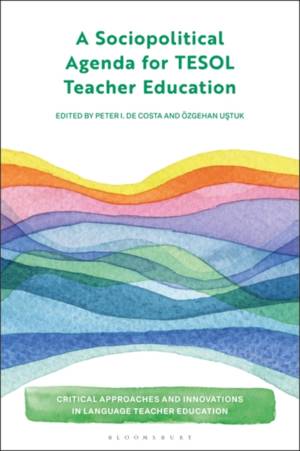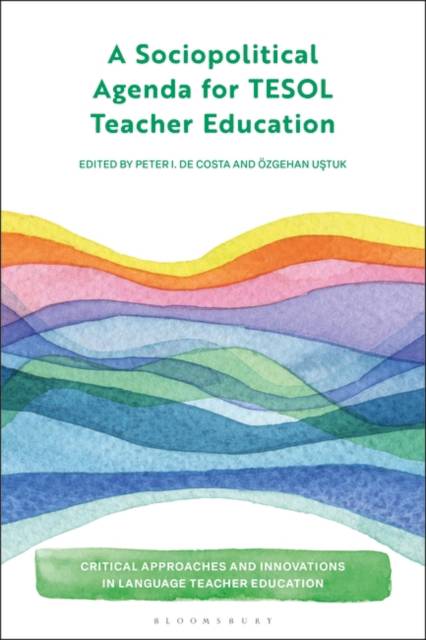
- Retrait gratuit dans votre magasin Club
- 7.000.000 titres dans notre catalogue
- Payer en toute sécurité
- Toujours un magasin près de chez vous
- Retrait gratuit dans votre magasin Club
- 7.000.0000 titres dans notre catalogue
- Payer en toute sécurité
- Toujours un magasin près de chez vous
A Sociopolitical Agenda for TESOL Teacher Education
203,95 €
+ 407 points
Description
Teaching English to Speakers of Other Languages (TESOL) sits at the nexus of constant change, which makes it vitally important for language teachers to engage in continuous development and keep abreast of the sociopolitical milieu in which they are embedded. However, most teacher education activities are often associated with what is perceived as best practices that are expected to be adopted
(often uncritically) for classroom application and practice, with the intention of training teachers to become technicians in their respective classrooms. In reality, TESOL practitioners often find themselves
in situations that require them to be reflexive practitioners and to negotiate sites of political struggles and social injustice.
Given that a socially situated understanding of TESOL teacher education is often overlooked, this volume highlights the sociopolitical dimensions of TESOL teacher education. In Part 1, the authors introduce the theoretical underpinnings of the sociopolitical agenda proposed by this volume. Building on these theories, Part 2 realizes the proposed agenda by situating it within actual TESOL teacher education contexts that are characterized by power imbalances and neoliberally inflected educational injustices.
(often uncritically) for classroom application and practice, with the intention of training teachers to become technicians in their respective classrooms. In reality, TESOL practitioners often find themselves
in situations that require them to be reflexive practitioners and to negotiate sites of political struggles and social injustice.
Given that a socially situated understanding of TESOL teacher education is often overlooked, this volume highlights the sociopolitical dimensions of TESOL teacher education. In Part 1, the authors introduce the theoretical underpinnings of the sociopolitical agenda proposed by this volume. Building on these theories, Part 2 realizes the proposed agenda by situating it within actual TESOL teacher education contexts that are characterized by power imbalances and neoliberally inflected educational injustices.
Spécifications
Parties prenantes
- Editeur:
Contenu
- Nombre de pages :
- 208
- Langue:
- Anglais
- Collection :
Caractéristiques
- EAN:
- 9781350262843
- Date de parution :
- 02-11-23
- Format:
- Livre relié
- Format numérique:
- Genaaid
- Dimensions :
- 156 mm x 234 mm
- Poids :
- 471 g

Les avis
Nous publions uniquement les avis qui respectent les conditions requises. Consultez nos conditions pour les avis.





